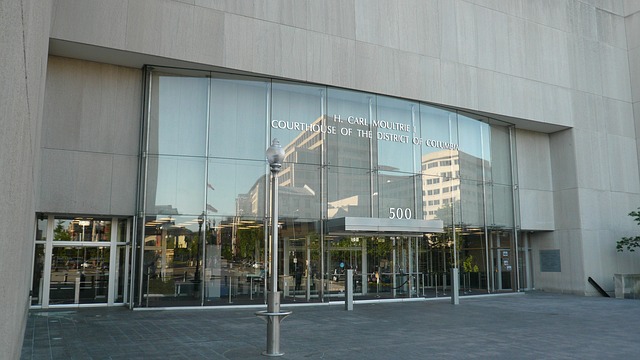The State Justice Institute awarded a key grant to the District of Columbia Courts’ Office of Court Interpreting Services to launch the Courts’ Interpreter Registry and the first-ever Amharic Court Interpreter Certification Examination. These initiatives demonstrate the Courts’ commitment to increase access for Limited English Proficient (LEP) and deaf or hard-of-hearing individuals to the judicial process and court services.
Interpreter Registry Demonstrates Quality and Excellence
The D.C. Courts Interpreter Registry launched on October 1, 2019. It is a formal court interpreter testing and training program designed to improve the quality of interpretation services at the Court by standardizing interpreter testing, training, responsibilities, and scheduling.
The registry includes over 160 freelance interpreters who typically provide interpretation services in over 40 spoken languages and American Sign Language in any given year. The Office of Court Interpreting Services (OCIS) manages the registry and coordinates the activities of the freelance interpreters, along with a federally certified Spanish staff interpreter and a nationally certified ASL staff interpreter to fulfill the Courts’ daily need for interpreters.
Interpreter Services by the Numbers
In calendar year 2019, the Courts provided 8,162 spoken and sign language interpreters for 6,506 court events and services. In 2020 and 2021—the COVID-19 public health emergency years—cases decreased dramatically. However, 2022 sees a significant uptick in activity. The most frequent language requests for court interpreters are:
- Spanish – 70%
- ASL – 9%
- Amharic – 8%
Interpreters assist in-person and online due to the increasing number of ways the Courts now deliver their services and manage hearings.
New Exam Signals Inclusion of Amharic Speakers
All Spanish and ASL interpreters on the Interpreter Registry are certified. The Courts have approximately nine Amharic interpreters who are qualified to provide interpreting services. None, however, are certified because, before the development of the Amharic Court Interpreter Certification exam in 2021, there was no certification standard that existed for the language. It was essential to develop an Amharic court interpreter certification examination to provide the Courts’ third most requested language interpreters a path towards certification. A certification exam ensures the Courts provide the best possible service to our growing Amharic-speaking public, and establishes a standard of excellence for Amharic interpreters consistent with those set by the National Center for State Courts (NCSC) and other interpreter testing authorities.
The Courts contracted the NCSC to design all the sections of the comprehensive court interpreter certification exam. The NCSC also developed an Amharic legal glossary and recruited Amharic subject matter experts to rate the exam. The exam took approximately one year to develop and was first offered in June 2021. The Courts plan to give the next exam in June 2022.
To support the Amharic interpreters’ path toward certification, the OCIS developed an Amharic skills building workshop. The workshop provides the interpreters with instruction, materials, and practice exercises, and helps deepen their understanding of interpretation methodology, hone their court interpreting skills, and discuss legal terminology and concepts. The annual workshop will help the interpreters better prepare for the certification exam and improve their overall skills.
New Exam’s Nationwide Impact
The Courts donated the exam to the NCSC to make the exam available for use across the country. The Amharic-speaking Ethiopian diaspora is not limited to the District of Columbia—large populations in California, Minnesota, New York, and other areas of the country also speak Amharic.
The exam establishes a standard of excellence in Amharic court interpretation, creates a path toward certification for Amharic interpreters, and assures the public and the Courts throughout the country that the Amharic interpreters working for the Courts are qualified to do so.
Mr. Hailu Gtsadek, Amharic interpreter and translator and owner of African Translation LLC, best describes the importance of the exam development effort:
“I am expressing my heartfelt appreciation for your dedication and hard work in organizing this Skills Building Workshop and creating a path to certification for practicing and aspiring Amharic interpreters … It is my understanding that no institution offers formal translation and interpretation training on both sides of the Atlantic in Amharic language. This makes your office a trail blazer in training and certifying Amharic interpreters … The Amharic interpreters of the past, along with me, praise you and honor you for elevating Amharic interpretation as a profession.”
Language Access is Access to Justice
The District of Columbia Courts have always dedicated many resources to ensure that professional interpretation and translation services are available to LEP and deaf or hard-of-hearing individuals at the Courts. Understanding and addressing the diversity of our metropolitan area speaks to who we are as a court system – and thanks to the crucial support of SJI, we’re able to continue to do so with innovative efforts like these.
Our promise to deliver language access is proof of our commitment to our vision: Open to All, Trusted by All, Justice for All.


